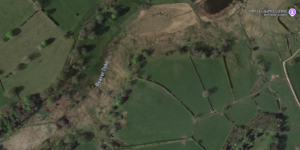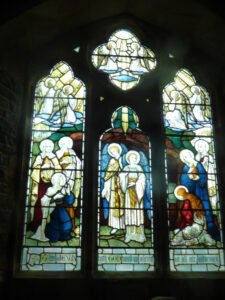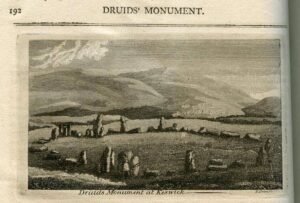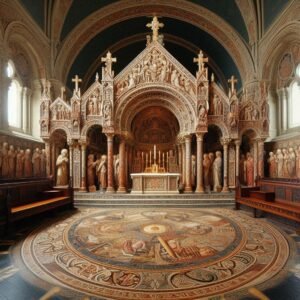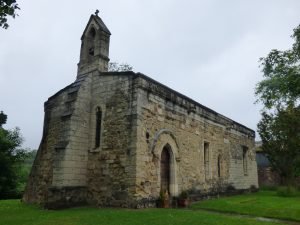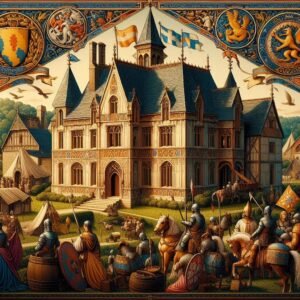The ard, also known as a scratch plough, represents one of the earliest forms of agricultural technology used by the people of ancient Brigantia.
Category: Medieval
Jul 08
The Border Reivers
The Border Reivers were a formidable force in the history of Britain, particularly during the tumultuous period from the late 13th century to the early 17th century. These raiders, hailing from both Scottish and English descent, operated along the Anglo-Scottish border, a region marked by constant strife and conflict.
Jul 07
Early Christian syncretism and how the old ones hid amongst the new religion
Syncretism is where two or more differing beliefs become merged. In England, this first happened under Roman rule, where many pre-existing Celtic shrines to specific deities were associated with Roman deities of the same qualities or attributes. Based on extensive research, I am now confident that in Britain, the early Christians undertook a similar process and with that knowledge, we should be able to reverse engineer, to some extent, our local Brigantian Celtic pantheons.
Jul 05
The Lawson-Tancred family
The Lawson-Tancred family, with its roots deeply embedded in English history, boasts several notable figures who have made significant contributions to their fields and society. The lineage of the family can be traced back to the Norman Conquest, with Richard Tankard, who owned lands at Boroughbridge in Yorkshire shortly after this pivotal event in English history.
Jul 04
Noble or Royal Houses and the House of Hauteville
This article introduces the concept of houses that embody a dynasty of influence and control, driven by feudal and familial responsibilities and agreements. It explores how houses worked during this period and examines the response by the Brigantian people to this increase in control by the Normans.


